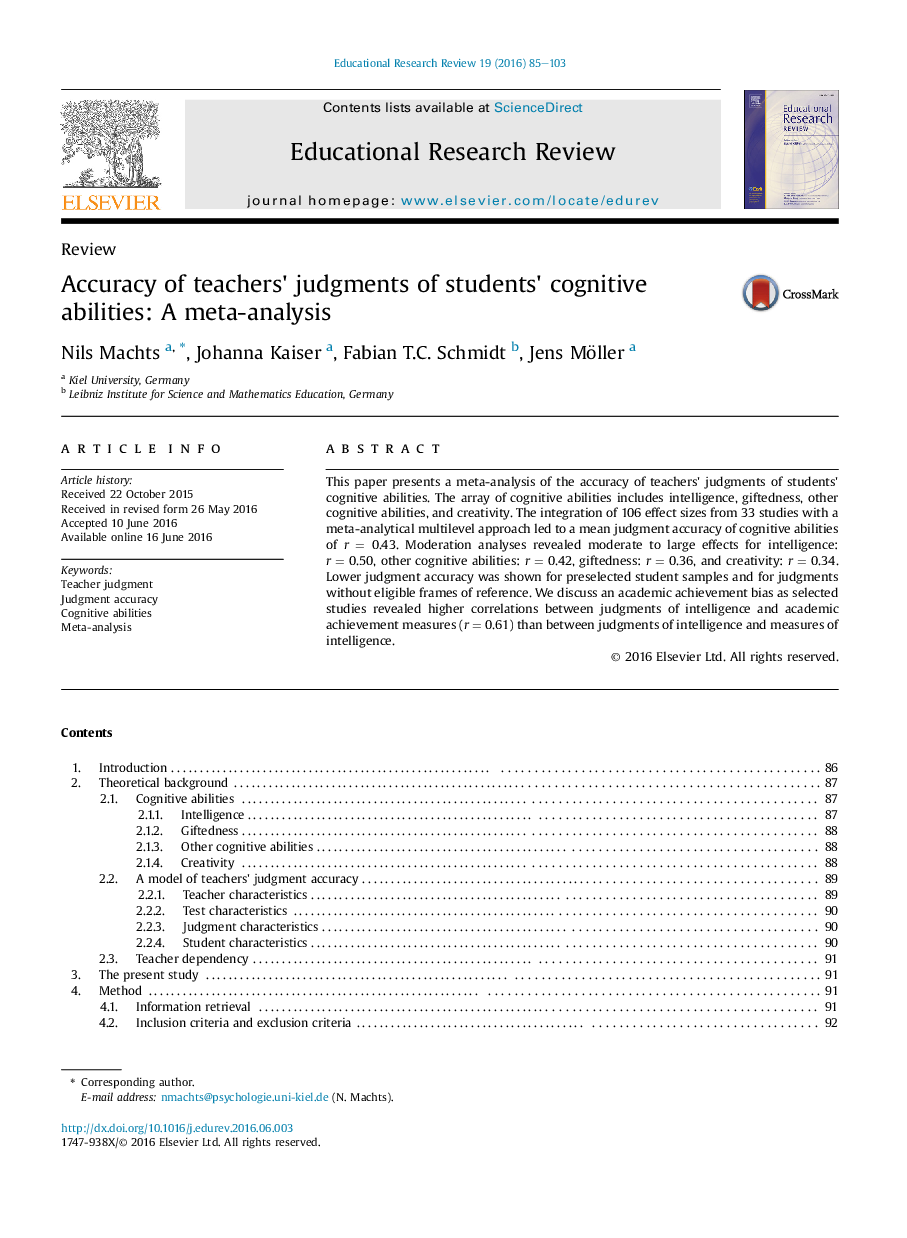| Article ID | Journal | Published Year | Pages | File Type |
|---|---|---|---|---|
| 355074 | Educational Research Review | 2016 | 19 Pages |
•Teachers provide moderately accurate judgments of students' cognitive abilities.•Judgment accuracy is higher for intelligence than for giftedness and creativity.•The frame of reference in judgments influences judgment accuracy.•Judgment accuracy decreases in preselected student samples.•An achievement bias impairs the use of teacher judgments for differential decisions.
This paper presents a meta-analysis of the accuracy of teachers' judgments of students' cognitive abilities. The array of cognitive abilities includes intelligence, giftedness, other cognitive abilities, and creativity. The integration of 106 effect sizes from 33 studies with a meta-analytical multilevel approach led to a mean judgment accuracy of cognitive abilities of r = 0.43. Moderation analyses revealed moderate to large effects for intelligence: r = 0.50, other cognitive abilities: r = 0.42, giftedness: r = 0.36, and creativity: r = 0.34. Lower judgment accuracy was shown for preselected student samples and for judgments without eligible frames of reference. We discuss an academic achievement bias as selected studies revealed higher correlations between judgments of intelligence and academic achievement measures (r = 0.61) than between judgments of intelligence and measures of intelligence.
